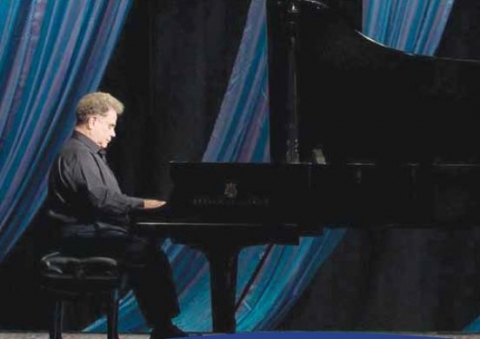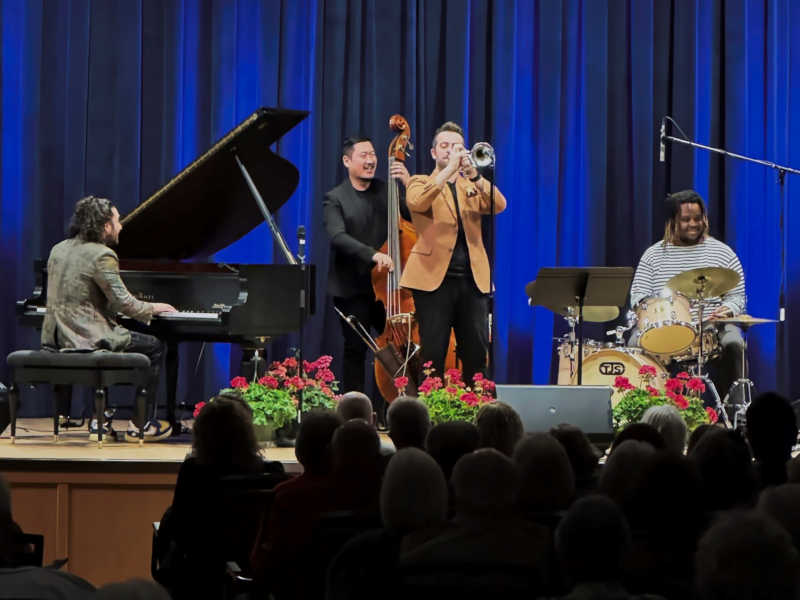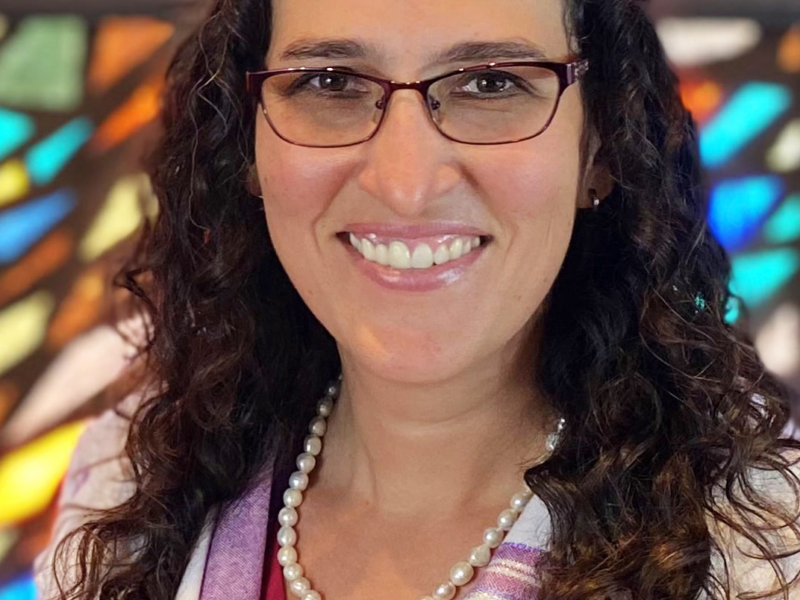Pianist Jeffrey Siegel is on a mission. He’s trying to get more people to enjoy classical music, and he’s going about it in a rather unconventional way. Instead of merely presenting recitals and concerts (of which he’s done more than his share during a career of 50+ years), Siegel draws his audiences in with a conversation. A keyboard conversation, to be precise.
On Nov. 23 Siegel will celebrate the 35th anniversary of his Keyboard Conversations series at the Scottsdale Center for the Performing Arts with a concert geared toward listeners of all ages. “Everybody is welcome, from ages 6 to 106,” he said in a recent interview. On Dec. 3 Spiegel will present a different KC featuring beloved piano classics and share fascinating facts about well-known pieces, like Beethoven’s Für Elise, that you may not already know.
Siegel was in Phoenix Oct. 13 performing tunes from great Jewish composers at the Arizona Jewish Historical Society’s Celebration of Music and Philanthropy. Siegel’s concert-with-commentary format combines informative, entertaining remarks with world-class performances of legendary masterpieces of the piano repertoire, concluding with a lively Q-and-A session. New listeners discover an informal, entertaining and instantly accessible introduction to the piano repertoire, while seasoned music lovers enjoy an enriched, more focused listening experience. Ongoing series of Keyboard Conversations flourish in major cities throughout the United States, including New York, Chicago, Philadelphia, Cleveland, Phoenix, Minneapolis/St. Paul, Dallas, Denver and Washington, D.C. Siegel also has a KC series in London. “These concerts in Scottsdale are something of a milestone for me,” says Siegel. “Forty-four years ago I started doing Keyboard Conversations in Chicago, where I’m from originally, and the idea proved so popular that now I go to more than 25 cities around the United States. A wonderful couple, Dayton and Laura Grafman, attended those Keyboard Conversations years ago in Chicago. They were big supporters of the KC program, and when they moved to Scottsdale, they thought the KCs would be a good fit in Arizona. Their arrival in Scottsdale virtually coincided with the opening of the Scottsdale Center, and once we began the series there, the audiences started to grow.”
The Virginia G. Piper Theater at the Scottsdale Center Hall seats around 800; Spiegel says he averages 700-750 audience members per show. Siegel’s inspiration for the Keyboard Conversations came from Leonard Bernstein’s Young People’s Concerts with the New York Philharmonic, which were broadcast live on CBS television from the late 1950s through 1972. “Bernstein had such an infectious love of music and he wanted others to love it too,” says Siegel. “The format Bernstein developed seems to be the right approach. It’s not a lecture, it’s a performance; what you say is a prelude to the piece itself.” Siegel, who was raised “proudly Jewish” and secular, also acknowledges his parents’ emphasis on the importance of education, a central component of his Keyboard Conversations.
Siegel got his start combining words with music performances as a Juilliard student in the 1950s. “Juilliard had recently become part of Lincoln Center, and they had a program where they’d send out students to various schools and music clubs and Rotary clubs to give a half-hour program,” he remembers ruefully. “You had to introduce the pieces you were going to play and there were no program notes. Nobody prepared us for this, so naturally I made every mistake you could make. The ability to talk about music well is not natural for a musician; it took me a long time to develop it myself.” Eventually, however, the presentations began to crystallize. One time, a musician friend came to a program and told Siegel, “These are not just for kids; what you’re doing would be of interest to everyone.” That led to the first series of Keyboard Conversations at Northwestern University, near Chicago.
The broad appeal of the KC, as Siegel has discovered, brings in knowledgeable music patrons as well as first-time concertgoers. “Audience members will meet you at a party after the concert and say, ‘I love music, but I wish my listening experience could be more than in one ear and out the other. Can’t a musician like you enhance it for me?’ ”
Segel also mentions a KC he did at the Kennedy Center in Washington, D.C. After the concert, “A high school kid came up to me and confided very quietly, ‘Hey Mr. Siegel, Beethoven’s not that bad!’ He just had to tell me how surprised he was. That kind of thing gives me hope.”
Siegel spends the majority of his performing life presenting KCs, but he does not think all musicians should be expected to talk about music the way he does. “It would be great if Leonard Bernsteins grew on trees, but there are very few musicians who can speak in an engaging way to a wide audience with the right terminology,” he acknowledges.
For Siegel, returning to the Scottsdale Center is like reuniting with an old friend. “It’s a beautiful hall and a wonderful place to hear music. It’s also the only hall I know of where they have a “keyboard in the sky.” An overhead camera shoots video of Siegel’s hands as he plays and projects the image on a huge screen behind the piano. “There’s no such thing as keyboard side seats anymore, because everyone can see my hands, no matter where they’re sitting.”





